Rare Silk Helps Weavers Earn Up to 900% More, Thanks to an Engineer
Thanks to civil engineer Udyan Singh, big brands like Biba and FabIndia are buying Bihar's rare Banka silk directly from hundreds of weavers who were once struggling to make a living.
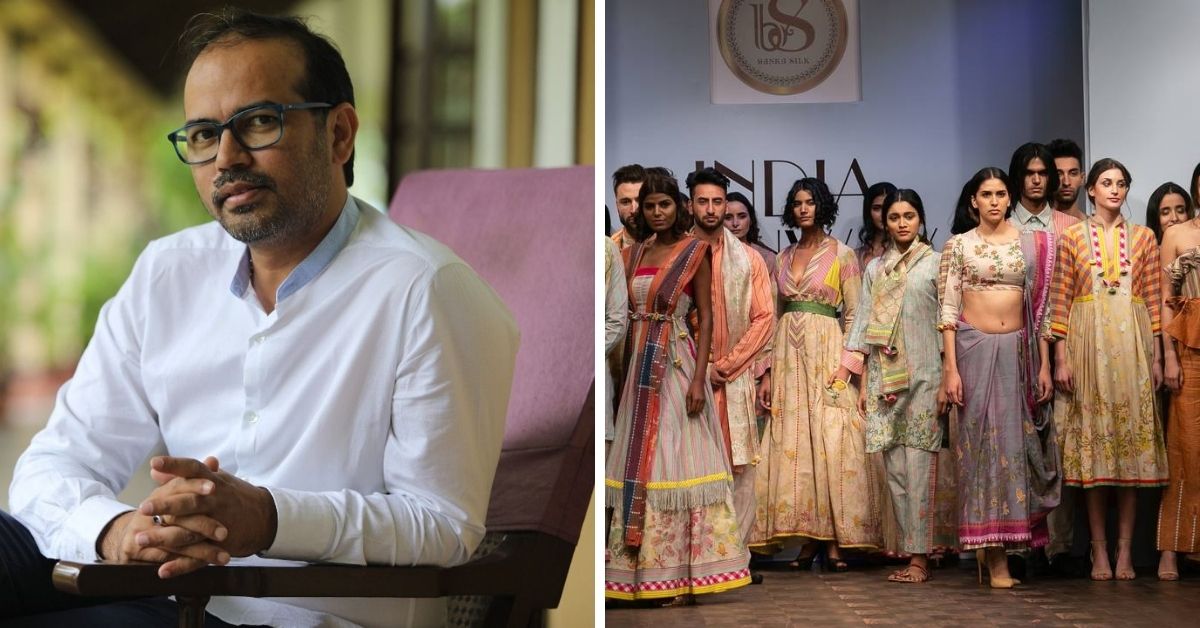
Born and raised in Bihar’s Banka town, Udyan Singh moved to Delhi in 2006 to complete his studies in civil engineering. He found a stable job with the Indian Railways but later quit to try his hand at ad filmmaking.
He moved to Mumbai where he worked on several advertisements and a television serial, ‘Ek Aangan Ke Ho Gaye Do’, for Doordarshan.
The 38-year-old stayed away from his hometown for nearly six years believing that there was no future in this small town. And he was partly right.
The town’s heritage weaving culture of Banka silk was in doldrums. Thousands of weavers were struggling to make money from an artwork that was once the pride of the region.
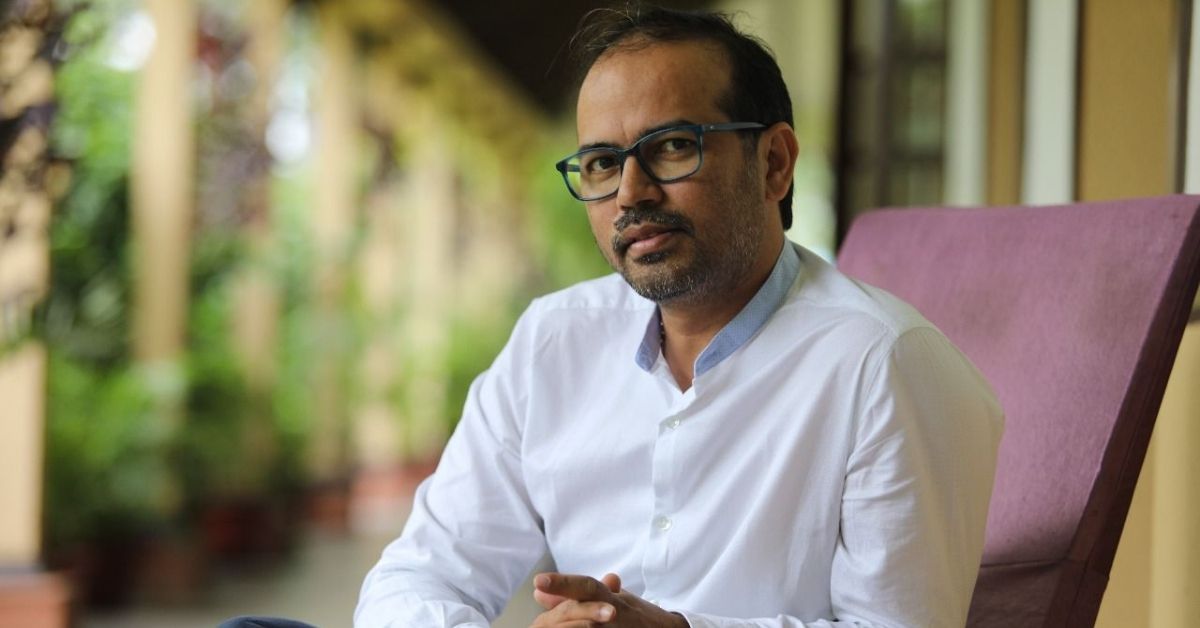
Being a native, he was already aware about the plight of the weavers but now his occasional visits to the town opened his eyes to the widening gap between the big cities and smaller towns. Udyan no longer wanted to be a mere spectator and decided to take matters in his own hand.
He raised close to Rs 25 lakh from his own pocket, and his friends and family to start ‘Banka Silk’ — a social enterprise to create a domestic and international market for the silk weavers in 2015.
In the last six years, Udyan has been able to impact the lives of thousands of weavers by providing a stable income, getting designers and experts from the weaving industry to train the weavers and giving education to their children.
Bringing such a large-scale on-ground impact that has improved the financial conditions of several people and at the same time made the indigenous silk famous nationwide is no mean feat.
The Better India speaks to Udyan about his decision to forgo lucrative opportunities, what makes banka silk so special and his experience of showcasing saris, apparels and more on prestigious platforms like India Runway Week and Jamshedpur Fashion Week.
Empowering artisans
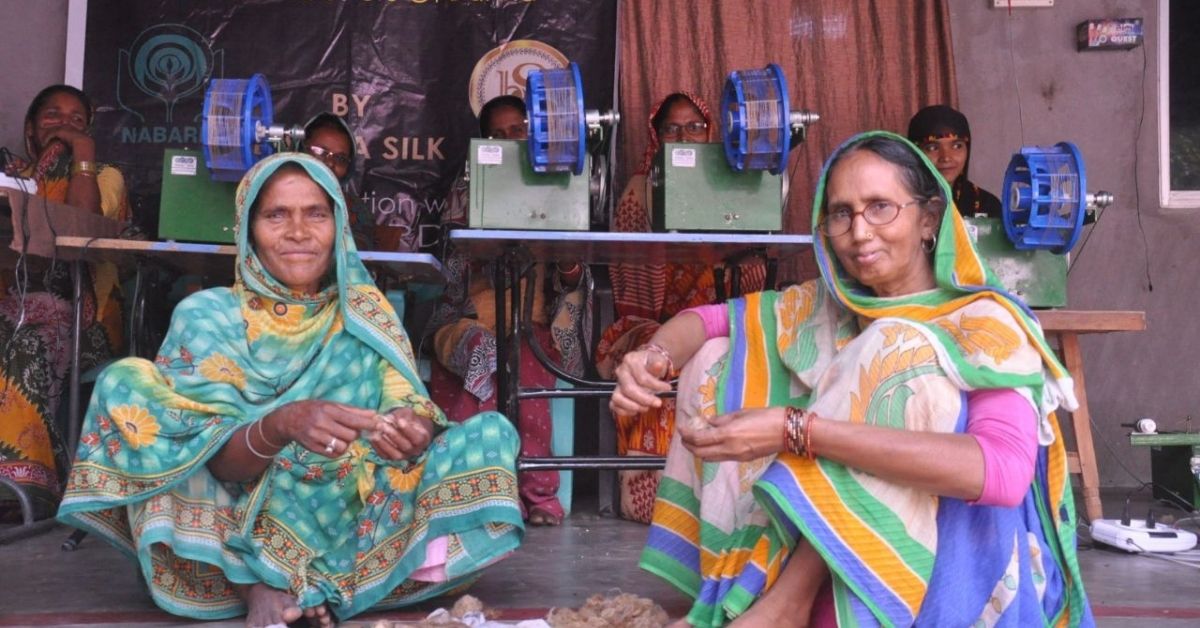
Although Udyan was well-versed with the culture, language and regional issues, it took him months to find a breakthrough in his project.
The most daunting task was to end the cycle of debt and loans that artisans took to purchase raw materials. He did so by availing government microfinance schemes for the artisans. He formed a handloom cluster and through the organisation applied for various benefits.
“The weavers have been trapped by the middle-men and loan sharks over the years. Due to lack of education, they are unable to demand for a fair price and take whatever they get to feed their families. During my research I found some artisans barely making Rs 30 per day. The government also has not done much to nurture or promote the local talent like they did for Bhagalpur and South Silk,” says Udyan.
He also roped in fashion designers to train the weavers in preparing dye, threadwork and implementing new innovative formats to meet the contemporary demand.
Banka silk is extracted from silk filaments of cocoons. The yarns are woven together on handlooms to create fabrics. The dyes are extracted from vegetables.
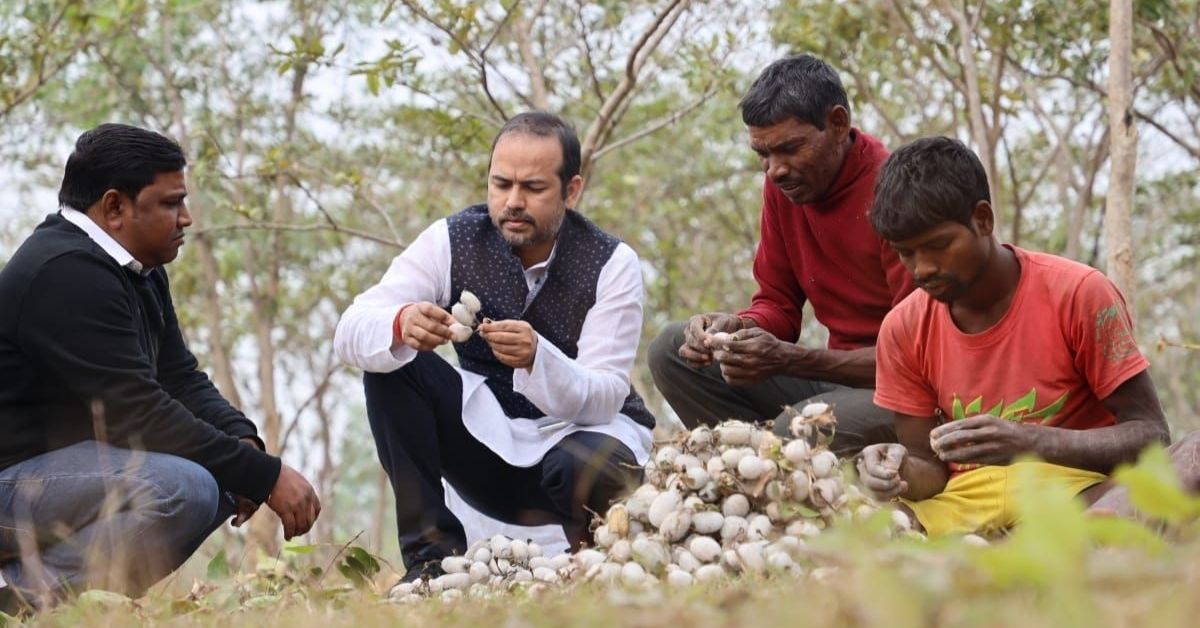
“The best-known silk is obtained from the cocoons of the larvae of the mulberry silkworm, Bombyx Mori reared in captivity (sericulture). The shimmering appearance of silk is due to the triangular prism-like structure of the silk fibre, which allows silk cloth to refract incoming light at different angles, thus producing different colors,” says Udyan.
Once the new products were ready, Udyan worked towards creating online and offline marketing channels. He made an online portal listing the handmade fabrics and partnered with e-commerce platforms like Amazon and Flipkart.
In his first offline event, he collaborated with 100 weavers and organised an exhibition in Patna in 2015. The artisans sold scarfs, saris and fabrics worth Rs 7 lakh. This motivated Udyan to do a couple of more exhibitions in different cities like Mumbai and Delhi.
Using the fruitful experiences, he approached various lifestyle brands like Biba, FabIndia and Aravind for on-shelf marketing.
The idea of collaborating with fashion designers and NIFT alumnus was another effective approach that further improved the sales. The artisans made several exotic pieces as per the designs given by the designers.
“There are two ways in which the silk is being sold. The buyers can either directly purchase from the weavers or weavers can sell it to me. Once I purchase the products, I bring in designers to work on the pieces and sell it thereafter,” adds Udyan.
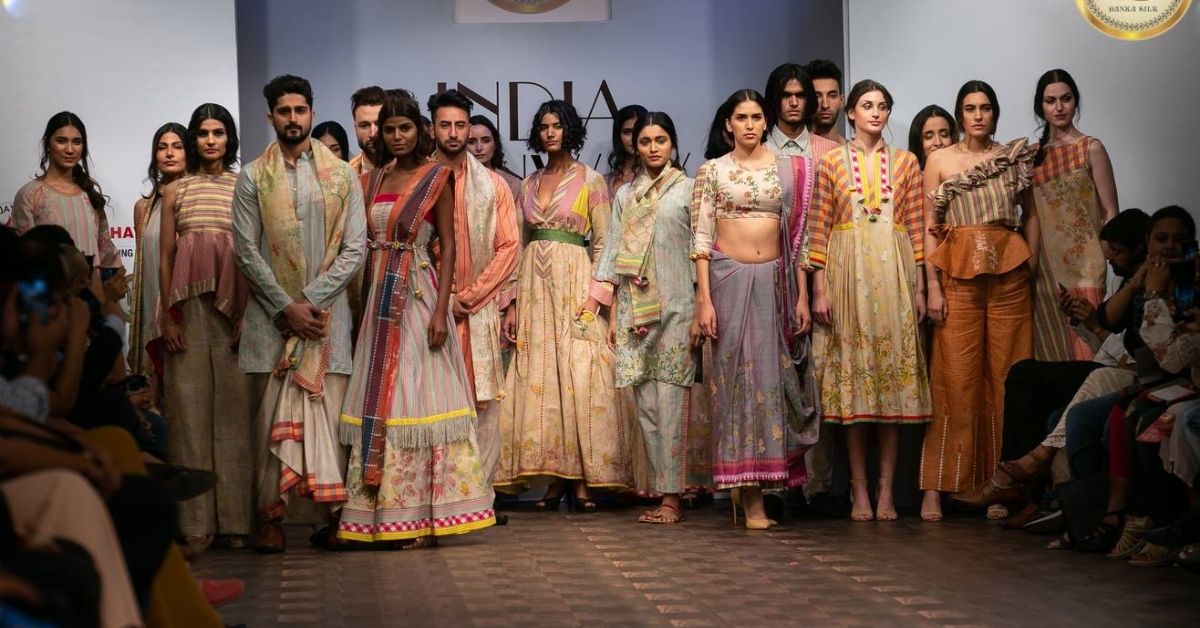
In 2018, the NGO collaborated with India Runway Week’s organisers, Avinash Pathania and Kiran Kheva. Around 40,000 weavers sold their pieces directly to the fashion designers.
With a price range between Rs 40 to Rs 5,000, the organisation sells scarves, stoles, sarees, masks and more.
“The authentic handloom fabric, acquired from Banka Silk through weavers in Bihar, was bought at the weavers’ price,” Avinash told Financial Express.
Mohammad Ezaz Alam is one of the weavers who has been directly doing business with big firms like FabIndia. The 30-year-old inherited the crat from his ancestors 12 years ago.
“Earlier, people purchased from us thinking it was Bhagalpuri silk, and to an extent we were okay as long as sales were made. But thanks to Udyan bhaiya, Banka is becoming famous. My father and grandfather barely made 5% profits as a large chunk went to the middlemen. Things improved in my time and my profits are up to 25% as we sell directly to customers. It is a win-win as I make more money but at the same time customers get the fabrics at a reasonable rate. We have got state-of-the-art machines that make the process simpler and quicker,” Alam tells The Better India.
Like Alam, incomes of around 5,000 weavers have improved significantly, each earning up to Rs 300 daily.
Udyan is working towards scaling the operations by exporting to North America and Europe. He recently opened the first Banka Silk store in Delhi. He has also approached the government and NABARD to raise funds for setting up a dying unit to make the process faster and easier.
You can get in touch with Banka Silk here.
Edited by Yoshita Rao
If you found our stories insightful, informative, or even just enjoyable, we invite you to consider making a voluntary payment to support the work we do at The Better India. Your contribution helps us continue producing quality content that educates, inspires, and drives positive change.
Choose one of the payment options below for your contribution-
By paying for the stories you value, you directly contribute to sustaining our efforts focused on making a difference in the world. Together, let’s ensure that impactful stories continue to be told and shared, enriching lives and communities alike.
Thank you for your support. Here are some frequently asked questions you might find helpful to know why you are contributing?


This story made me
-
97
-
121
-
89
-
167











